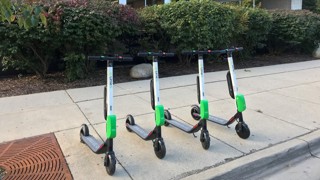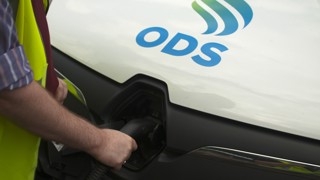Tees Valley Combined Authority will host the first e-scooter trials, while new Government guidance for users has been published today.
The Government fast-tracked trials of e-scooters as part of a £2 billion investment in green travel solutions.
E-scooter rental trials were given the green light to start from the beginning of the month – a year earlier than planned - to help encourage more people off public transport in the wake of the Coronavirus pandemic.
Currently, e-scooters – which can travel at up to 15.5mph – are banned on roads and pavements in the UK.
Tees Valley Combined Authority, consisting of Darlington Borough Council, Hartlepool Borough Council, Middlesbrough Council, Redcar and Cleveland Borough Council, and Stockton-on-Tees Borough Council, is the first local authority to have a trial approved by the Government.
Tees Valley Mayor Ben Houchen, says the pilot will begin later this month, with 100 e-scooters initially involved in the trial.
At the start of the trial each parking location will be strictly geo-fenced so users must leave their e-scooters in these locations at the end of the ride.
Working with Ginger, a UK based e-scooter company, it will be responsible for the charging of scooters. As the trial progresses Ginger will look at introducing on-street charging and docking locations.
Houchen said: “Teesside, Darlington and Hartlepool are leading the UK in new, clean and innovate technologies. E-scooters are a part of that.
“I have been a big fan of e-scooters for a very long time, and when the Government announced their plans to fast track their introduction, it was obvious that our region should be the first trial area. So, I am thrilled that the UKs first trail on e-scooters on UK roads will take place across Teesside, Darlington and Hartlepool.”
The new rules around e-scooter use for the rental trials have been published today (Monday, July 13) by the Government.
The rules for private e-scooters have not changed. It is against the law to use a privately-owned e-scooter.
Users taking part in the trial must have the category Q entitlement on your driving licence to use an e-scooter.
A full or provisional UK licence for categories AM, A or B includes entitlement for category Q so, if you have one of these licences, you can also use an e-scooter. If you have a provisional licence, you do not need to show L plates when using an e-scooter.
E-scooters will be required to have motor insurance, but this will be provided by the e-scooter rental operator.
Users will also be required to wear a cycle helmet when using an e-scooter. Helmets are recommended but are not a legal requirement.
Trial e-scooters will be able to be used on the road (except motorways) and in cycle lanes, but they must not be used on the pavement.
E-scooters do not need to be registered, display registration plates or pay vehicle excise duty.
The trials which are due to last for 12 months, will test the devices’ safety, green credentials and ability to reduce traffic and will be closely monitored so government can assess the benefits of e-scooters and their impact on public space.
For more on e-scooters, see the July digital edition of Fleet News, published next week.






















Login to comment
Comments
No comments have been made yet.